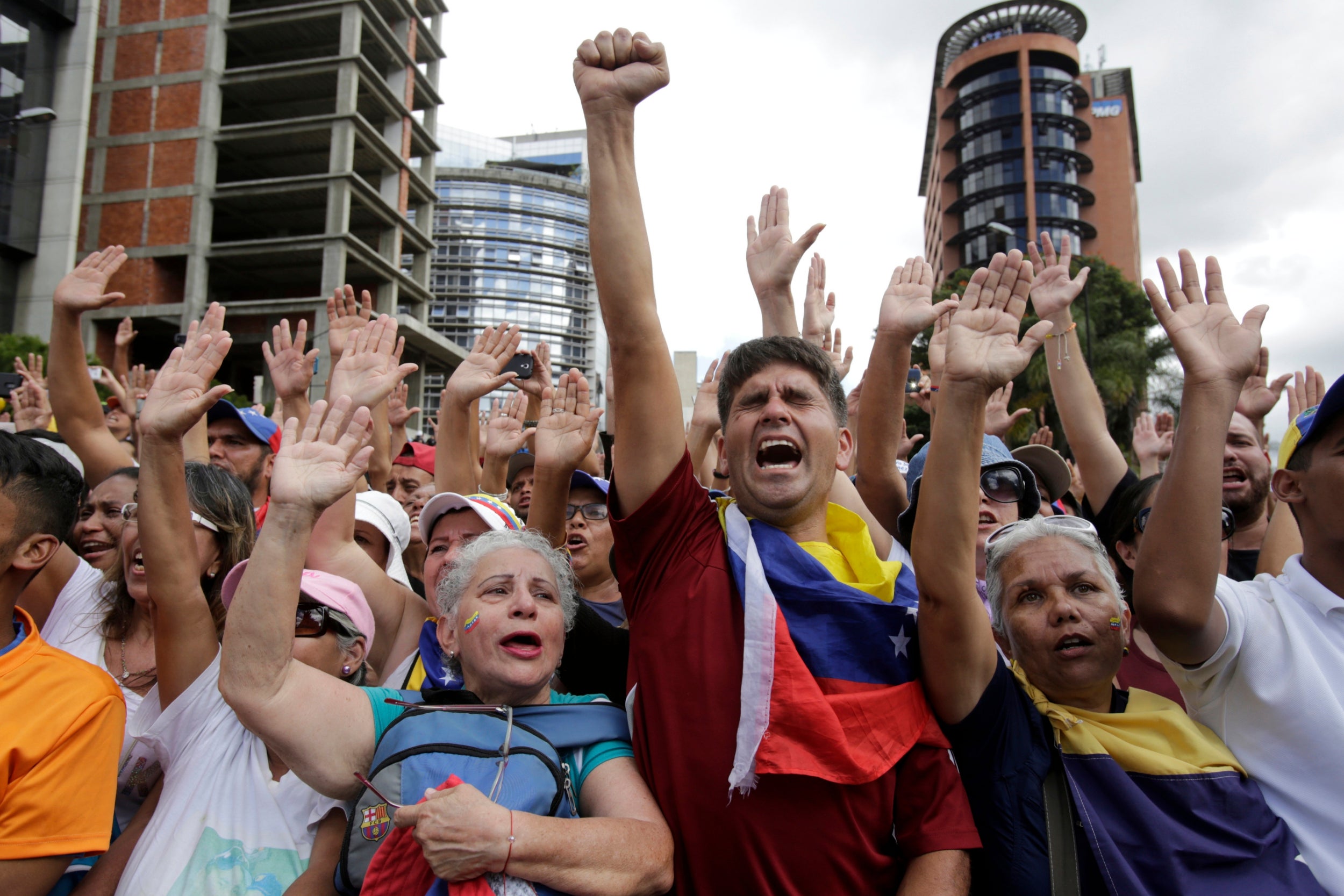The situation in Venezuela could easily spiral into civil war – it’s time for the world to take a step back
The temptation to ‘rescue’ Venezuela by the international community is substantial, but there is every chance that it would make things worse

Your support helps us to tell the story
From reproductive rights to climate change to Big Tech, The Independent is on the ground when the story is developing. Whether it's investigating the financials of Elon Musk's pro-Trump PAC or producing our latest documentary, 'The A Word', which shines a light on the American women fighting for reproductive rights, we know how important it is to parse out the facts from the messaging.
At such a critical moment in US history, we need reporters on the ground. Your donation allows us to keep sending journalists to speak to both sides of the story.
The Independent is trusted by Americans across the entire political spectrum. And unlike many other quality news outlets, we choose not to lock Americans out of our reporting and analysis with paywalls. We believe quality journalism should be available to everyone, paid for by those who can afford it.
Your support makes all the difference.There may be some gallows humour to be had in the fact Venezuela now has two men “pretending” to be president, but neither of them actually governing this benighted country. However, the situation has never been so combustible since the late Hugo Chavez came to power almost exactly a decade ago on a programme of leftist nationalist populism, or Bolivarianism to use the correct local branding.
Since Mr Chavez died in 2013, his arbitrary policies have been pursued virtually unchanged by his successor (or one of them) Nicolas Maduro. It is Mr Maduro who is accused of fixing the elections last May for his second presidential term, with the allegations so serious that the opposition leader, Juan Guaido, has decided to swear himself in as president as well.
The military, not always friends of socialist South American regimes, has come out, in gleaming full-dress uniform, to pledge their allegiance to Mr Maduro. Against that alliance there is President Trump, and at least a section of the Venezuelan people, bitterly and violently divided about the future of their country.
For Mr Trump is pursuing a policy that has enjoyed mixed success in the past – the refusal to recognise an incumbent regime not to Washington’s tastes. After all, the United States refused to recognise Mao and the Communist Party of China as the legitimate government in Beijing from 1949 to 1978, with no apparent effect on the Maoists’ grip on power. More recently, and rather closer to Caracas, geographically and doctrinally, America kept up a campaign of hostility against Castro’s Cuba, again with the often perverse effect of legitimising his patriotism and allowing him to blame his nation’s misfortunes on Yankee sanctions.
The real question is: will Mr Trump’s diplomatic move to recognise Mr Guaido as the legitimate government of Venezuela be escalated into some kind of physical intervention?
This would be clumsy, foolish, and would probably provoke the incipient civil war that has been threatening to break out for many years, driven by a people grown desperate by the destruction of economic freedom, hope and opportunity.
One other proximate cause of such a turn of events might be tension with neighbouring Colombia, which has joined the US and Canada in snubbing Mr Maduro, much to the latter’s fury. Colombia has had to bear the brunt of the economic refugees fleeing Venezuela (and then on to Mexico and the US border), and relations between the two states are poor. No one would be surprised if the refugee crisis turned more violent.
Yet Venezuela needs no assistance from outsiders to sink into further chaos and violence. The risk of events spiralling out of control, as the UN predicts, is very real. It is difficult to see how events could unwind themselves into a peaceful resolution of the disputed elections; yet any intervention by foreigners, even under a UN-mandate, would merely spark fresh conflict with a military and police that may themselves form into factions, being torn every which way between loyalty to the country or the regime if US troops turn up. All the conditions for a confused civil war would then be amply fulfilled. Already some 20 or so demonstrators have been shot dead in the latest round of protests, and a further 350 arrested.
The economic crisis – mass unemployment, criminally mismanaged oil resources, hyperinflation – has mutated into a political crisis and now a humanitarian one. The temptation to “rescue” Venezuela by the international community is substantial. But, as with so many more such moves in recent decades, there is every chance that it would make things worse.
Bad as the situation is, the arrival of troops from outside Venezuela on the invitation of “President Guaido” would be all that would be needed to push the country into a long and bloody civil war, based on a question of democratic legitimacy that would never then be resolved. Again, as with other current conflicts, Venezuela would be used as a proxy struggle for the US and the west, backing Mr Guaido, with Russia and China backing Mr Maduro – another war about oil. This is the last thing the world needs, and would destroy Venezuela for decades. Dictatorship or model of Bolivarian progress, America has gone as far as it should in Venezuela.
Join our commenting forum
Join thought-provoking conversations, follow other Independent readers and see their replies
Comments